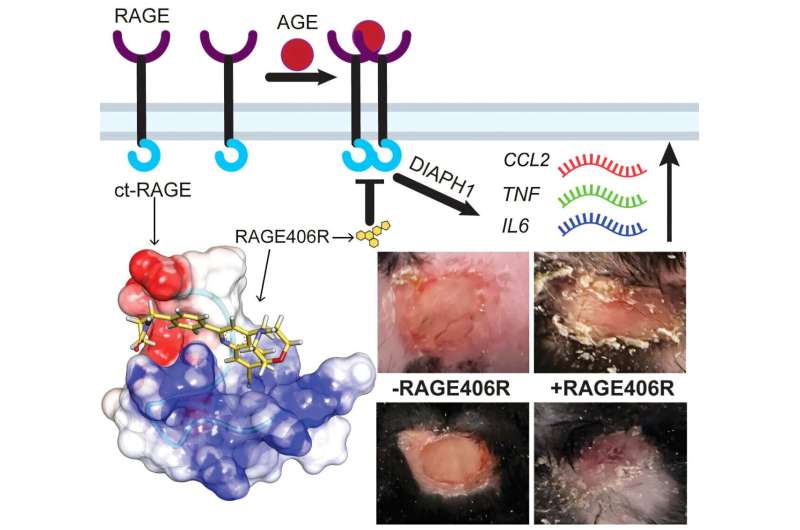In their latest work, the researchers successfully identified—and developed a small molecule drug to disrupt—an intracellular chain reaction that is a major contributor to diabetes-induced complications. Their findings, published earlier this month, were featured on the cover of Cell Chemical Biology.
“Current treatments for diabetes primarily focus on slowing disease progression; however, they do not address the underlying inflammation that contributes to the complications of diabetes,” said co-senior author Alexander Shekhtman, professor in the Department of Chemistry and the RNA Institute at UAlbany.
“Our findings point to a promising new pathway for treating diabetes in the future. These study results will serve as a springboard for the development of therapies for both types of diabetes, and for designing markers that can measure how well the new treatment works in live animals.”

